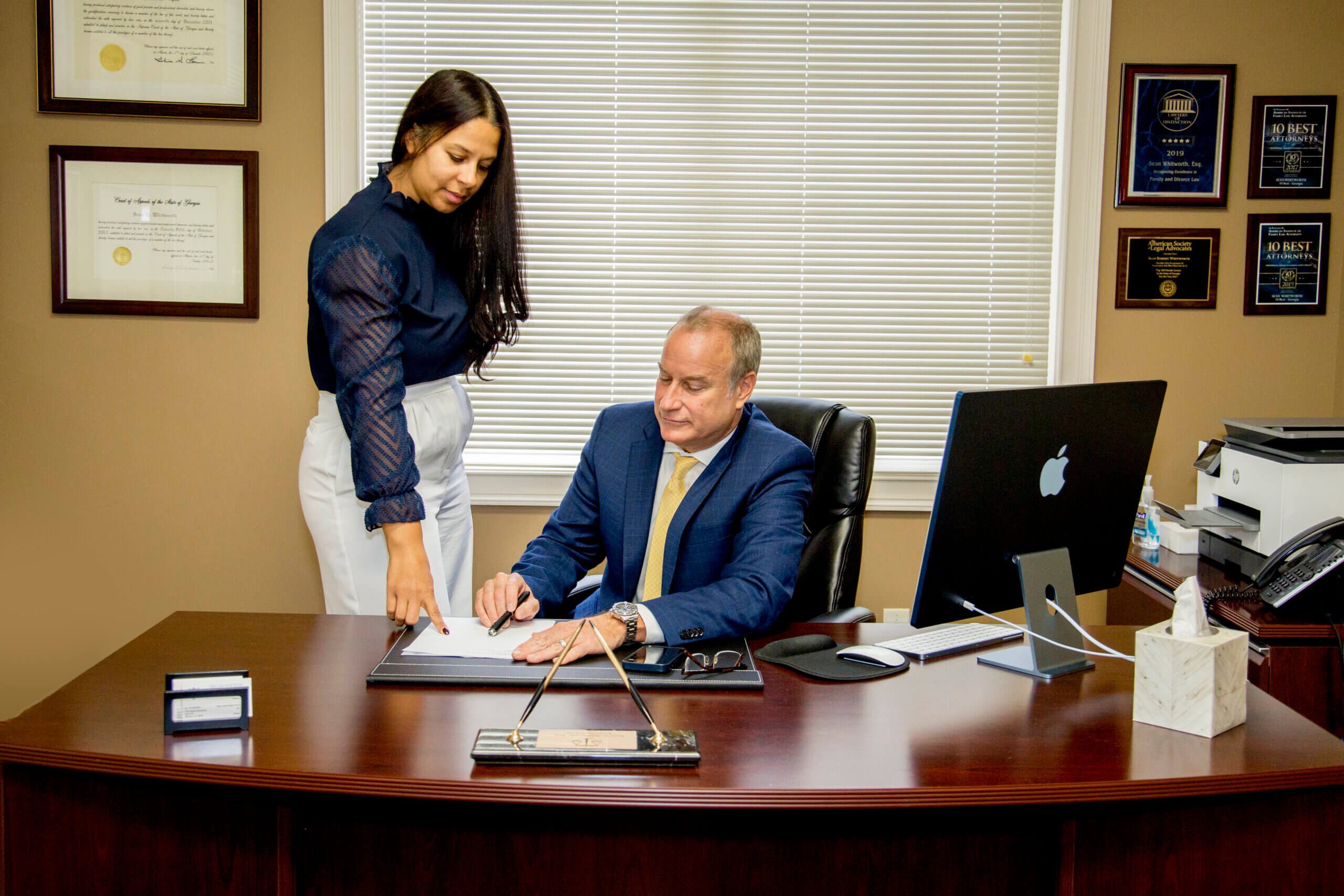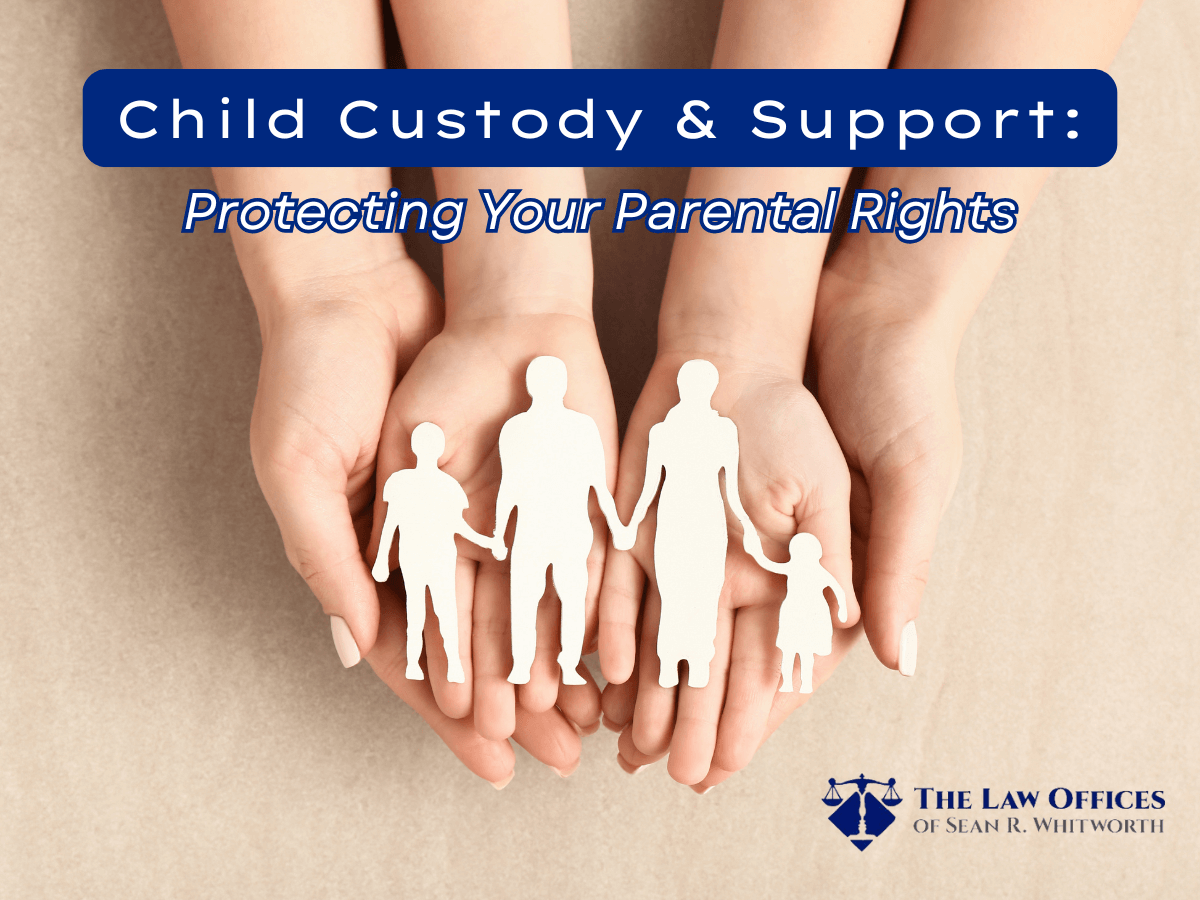
Understanding Divorce in Georgia: Your Guide to a Smooth Process
Divorce is a significant life transition that often comes with emotional, financial, and legal uncertainty. If you’re facing divorce in Georgia, especially in the Greater Atlanta area, being informed and supported can make the journey smoother. Whether you’re in Marietta, Roswell, or Sandy Springs, understanding your options and working with a knowledgeable family law attorney can provide clarity when you need it most.
Attorney Sean R. Whitworth is a trusted divorce lawyer in Marietta who offers flat fee services and personalized legal counsel for individuals across Metro Atlanta.
What Are the Grounds for Divorce in Georgia?
Georgia law allows for both no-fault and fault-based divorces. The most commonly cited reason is irreconcilable differences, which means that the marriage is irretrievably broken. This no-fault approach is typically faster and less contentious.
Fault-based grounds may include:
- Adultery
- Abandonment
- Mental cruelty or physical abuse
- Substance abuse
- Incarceration
While fault-based claims can impact the court’s decisions on property division or child custody, most divorces in Georgia proceed as no-fault for the sake of efficiency and privacy.
Where to File for Divorce In Atlanta Area
Divorces in Georgia are filed in the Superior Court of the county where the defendant resides. If you live in Marietta, that means filing in Cobb County Superior Court. Those in Roswell or Alpharetta may file in Fulton County, while residents in Woodstock will likely file in Cherokee County.
Attorney Sean Whitworth’s office is located in Marietta and conveniently serves clients throughout:
- Cobb County
- Fulton County
- Cherokee County
- Paulding County
- Douglas County
The Georgia Divorce Process: Step-by-Step
- Filing the Petition
The process begins when one spouse files a Complaint for Divorce with the appropriate Superior Court. This document outlines the grounds for divorce and any requests for child custody, support, or property division. - Serving Your Spouse
The petition must be legally served to the other spouse, starting the official 30-day response period. - Temporary Hearings (if needed)
In contested cases, temporary orders may be issued to address custody, living arrangements, and financial support. - Discovery and Negotiation
Both parties may exchange documents and information, often negotiating a settlement outside of court. - Final Decree
If both parties reach an agreement, the divorce may be finalized in as little as 30 days. Contested cases that go to trial can take significantly longer.
Equitable Division of Property in Georgia
Georgia is an equitable distribution state. This means the court divides marital property fairly, but not always equally. Factors considered include:
- Duration of the marriage
- Financial and non-financial contributions by each spouse
- Future financial needs
- Misconduct that affected marital assets
If you own a business, investment accounts, or real estate, Attorney Sean Whitworth can help protect your interests during asset division. His flat fee divorce services include customized attention for complex asset cases.
Child Custody and Child Support in Georgia
When children are involved, the court’s primary concern is the best interest of the child. Georgia courts evaluate:
- Each parent’s ability to provide care
- Stability of each household
- Emotional ties between parent and child
- Health, education, and special needs
- The child’s wishes, if they are over 14
Legal custody involves decision-making authority, while physical custody determines where the child lives. Joint custody is common, but not automatic. Child support is calculated based on both parents’ income and the child’s specific needs.
Sean Whitworth works closely with parents in Cobb and Fulton counties to develop effective parenting plans and ensure child support obligations are fair.
Why Choose a Flat Fee Divorce Lawyer in Marietta
Many Atlanta-area residents are surprised by how quickly legal fees can add up. That’s why Sean Whitworth offers a flat feemodel for all divorce cases. No hourly billing. No unexpected invoices. You’ll know exactly what to expect, giving you peace of mind during a stressful time.
Whether your divorce is uncontested or complex, his transparent pricing structure puts your needs and budget first..
Local Experience Makes a Difference
Every Georgia county has unique procedural requirements. Having a local attorney with courtroom experience in Cobb, Fulton, and Cherokee counties can help avoid delays and ensure the court process runs smoothly.
Sean Whitworth has spent over a decade representing individuals across Metro Atlanta in divorce, custody, and support cases. As a solo practitioner, he personally handles every aspect of your case from the initial filing to the final hearing
Frequently Asked Questions?
- How long do I have to live in Georgia to file for divorce?
You or your spouse must have lived in Georgia for at least six months before filing. - Can my spouse stop the divorce?
No. If one spouse wants a divorce, the court will proceed, even if the other spouse disagrees. - Do I have to go to court?
In uncontested divorces, you may not need to appear in court at all. In some counties, the judge can sign off on your agreement without a hearing. - How do I know what custody arrangement is best?
Every family is unique. An experienced attorney like Sean Whitworth can help you develop a plan that works for your child’s well-being and complies with Georgia law. - Take the Next Step Toward Peace of Mind
If you are considering divorce in Marietta or anywhere in Greater Atlanta, don’t go through it alone. Work with an attorney who listens, informs, and empowers you to take control of your future.
Contact The Law Offices of Sean R. Whitworth today to schedule your consultation. Let Sean’s flat fee approach and deep knowledge of Georgia divorce law help guide you to a brighter, more stable future.
Appointment Request
"*" indicates required fields







